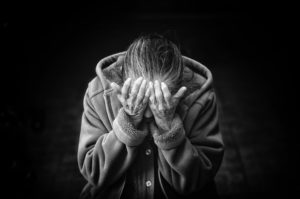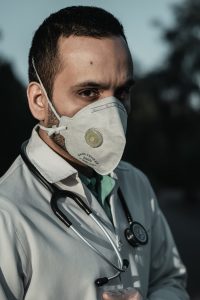by Jenny Rose | Dec 3, 2022 | Aging, Connection & Community, Emotional Intelligence
I once saw the movie 50 First Dates, about a young woman who had no memory. Every day she woke up as a clean slate with no past.
The movie gave me the heebie-jeebies. I’ll never watch it again. In several close relationships, both family and romantic, I’ve experienced the devastating grenade of “I forgot,” or “I don’t remember that.”

Photo by John Salvino on Unsplash
In chronically abusive and dysfunctional family systems, “I don’t remember that” effectively shuts down any way forward into mutual responsibility, understanding or healing. Our traumatic memories suddenly waver. Did we, after all, make it all up? Did we misunderstand for years and decades? Are we unforgiving, mean and petty of spirit, hateful? Most frightening of all, are we crazy? If we’ve been chronically gaslit, we certainly feel crazy.
In “romantic” relationships, this memory failure is equally damaging. It blocks conflict resolution and discussion. If it’s true, it means the forgetful partner is unable to learn and adapt to the needs of the relationship and the other partner. There can be no learning and growing together. Nothing can change.
Most of all, this kind of response feels to me like an abdication, code for “it’s not my fault and I refuse to take responsibility.” It’s a signal I’m on my own with my questions and my need to understand.
It’s like a door slammed in my face, and I don’t beat on doors slammed in my face, begging for entry. I walk away.
Now I have a relative with dementia, and it’s extraordinary. I have never felt able to get close to this person before, though I have loved them deeply all my life. I’ve also never felt I was anything but a disappointment and a burden to them. I couldn’t find a way to get past their lifetime of accumulated trauma and pain, bitterness and rewritten narratives. As a truth seeker, I’ve been continually stymied and suspicious, believing I could not trust them to ever tell me the plain truth about anything.
Most painful of all, the fullness of my love has been rejected, over and over, for decades. Nothing I am or have to give was welcome; most of it was distinctly unwelcome.
Now I am witnessing a kind of metamorphosis. Gradually, gently, like leaves falling from trees in autumn, my loved one is letting go of their memories. And in some elemental way, as I walk beside them (because I have always been beside them), I am releasing the pain of my memories.
My loved one has experienced periods of extreme agitation and distress, and those are terrible for everyone. But, as the days pass, those periods seem to have passed too, and now I’m witnessing a gentle vagueness, a dream-like drifting, and in some entirely unexpected and inexplicable way I feel I’m at last catching a glimpse of the real person I’ve always wanted to know.
Even more amazing, I can now say “I love you very much,” that simple truth I’ve never been able to freely express, and they say it back to me. And I believe them.
After all these decades of pain and suffering, separation and bleeding wounds, I am finally able, in the words of Eden Ahbez, “just to love and be loved in return.”
This was all I ever wanted out of this relationship (and most others). Just this. To love fully and be loved in return. And I don’t care if it’s only in the moment. I don’t care that they’ll forget this elemental exchange of words of love as soon as they hang up the phone, or possibly before that.
What matters to me is they hear me, they accept my love, they return it. I’ve never had that with this person before. Maintaining bitterness, rewriting history, remembering old hurts, all require memory. And their memory is loosening, unraveling. What’s left is a person I’ve always sensed was there, a person of innocent simplicity, an undamaged personality who can participate in love. Someone who is not haunted by their past. Someone, oddly, who I trust.

Photo by James Pond on Unsplash
Whatever the next interaction brings, I don’t have to go into it fully armored. Forgiveness has no meaning when dealing with dementia. Cognitive decline is unpredictable, clearly out of anyone’s control. Whatever is said in any given moment will not be remembered, whether words exchanged are of love or not. So, there’s no point in me remembering, or taking anything personally, or trying hard to be acceptable, do it right, stay safe. It feels safe to trust again, to trust the naked soul I’m dealing with now. I don’t have to try to repair our relationship. My feelings of duty and obligation are meaningless, because those expectations reside in memory, and memory flutters in the winter wind, frayed and thin.
My loved one has attained, at least periodically, a kind of peace they have never demonstrated before in my lifetime. Peace from the past. Peace from emotional pain. Because they are at peace, I, at last, can also be at peace.
I hoped death would free us both. I never expected dementia would do it first. We have both found absolution, at least for now.
Whatever comes, these interactions are precious to me. I realize now I still reside somewhere in the heart of this damaged, unhappy person. I was and am loved, at least as best they could and can. Knowing that, feeling it at last, changes everything and heals much.
I am beyond grateful. And that’s a strange feeling in this context. Dementia takes so much away … In this case, it’s loosened prison bars and chains, unlocked shackles and manacles, and left behind something pure and tender, a glimpse of someone fresh and unscarred in an aged and battered body.
I wonder how much of our identity is built from our social context memories. Too bad we can’t just delete certain files, wipe our hard drive clean in spots, and begin again.
I ask myself if it’s wrong to be so happy, so grateful, so relieved at this unexpected turn of events. I tell myself I should feel guilty. I’ve occasionally worked with Alzheimer’s patients, and I frequently work with people who are dealing with dementia and Alzheimer’s in their loved ones. I’ve never heard anyone suggest anything positive about it. Once again, I seem to be totally out of step.
I don’t take my self-doubt terribly seriously, though. I always think I’m doing life wrong. I’ve learned to tell that voice to shut up and sit down. Wrong or right, I feel a kind of exhausted joy at the lessening, maybe even the cessation of my loved one’s emotional suffering. Since I was a child I’ve wanted their health and happiness, their peace, wanted it more even than to be allowed to love and to be loved. I never expected those first passionate prayers from my child self would be answered, let alone in this manner. But here we are.
I try
to remember
my former life
and realize how quickly
the current travels
towards home
how those
dark and irretrievable
blossoms of sound
I made in that time
have traveled
far-away
on the black surface
of memory
as if they no longer
belonged
to me.
From “The Sound of the Wild” by David Whyte
To read my fiction, serially published free every week, go here:
by Jenny Rose | Jul 16, 2022 | Emotional Intelligence, Feelings, Happiness
Years ago, when I was seeking a divorce, my lawyer asked me one day in the middle of my frustration and fear regarding custody of my boys if I wanted to be right or I wanted to be free.
It was one of the best questions anyone had ever asked me, and I didn’t have to think about my answer.
“Free,” I said. In that moment, I gave up on my rather naïve ideas about justice and cooperation in the process of divorce. I stopped worrying about being right. I understood no one but me was interested in the best situation for the kids. I fought for as much freedom as I could get, not for myself, but for them.
The memory came vividly back to me when I read this article by Arthur Brooks from Big Think. The author describes an interaction with a successful but unhappy financier, who remarks she would rather be special than happy. Her definition of special has to do with professional success. Ordinary people, she says, can be happy. She wants to be more special than that.

Photo by Andrew Loke on Unsplash
I thought about that choice, and I wonder, are special or happy the only two choices? Is there some rule stating one can’t be special and happy?
Why do we believe we have to give up something to be happy?
I’ve written a series of posts about happiness, inspired by the work of Martin Seligman, PhD. I went back and reread those posts.
Can ordinary people be happy but extraordinary people can’t?
Are ordinary people happy?
Is ordinariness shameful? Is happiness a goal only for those who can’t be special in any way, a kind of booby prize?
I don’t believe happiness has anything to do with being ordinary, extraordinary (as defined by whom?) or somewhere in between. It’s a lot more complicated than that. I wonder if we’re losing our ability to distinguish between temporarily satisfying our addictions, expectations, and compulsions while numbing our pain and fear, and feeling true, enduring happiness.
Happiness, after all, is a state of being rather than a state of doing. To some degree we must allow it – give it time, space, and a safe place to exist. It’s not something to pursue or try to create. It’s already within us, somewhere.
(This creation of space, by the way, is a pillar of minimalism. If everything is important, nothing is. One discards until what’s truly important is revealed.)
I jotted down this statement: I’d rather be dutiful, loyal, responsible, a good parent/partner/daughter/sister, rich, powerful, in control, right or successful, than happy. I didn’t think hard about it. I have chosen everything on that list at one time or another in my life. I haven’t chosen happiness or seen it as a choice, and I’ve been unconscious of my belief that happiness can’t coexist with my standards of integrity.
Happiness just doesn’t seem like a worthy goal to me. It’s not culturally sanctioned. Ambition, power, wealth – those are worthy goals. Those are things that matter. Obviously (so obvious it goes without saying directly), those are the roads to happiness. One can be happy, but it must be earned, and happiness is not the goal, just a nice bonus. The real goal is productivity. The shadow side of productivity is consumption.
But productivity is a moving goalpost, and it doesn’t make us happy.
It occurs to me we talk about happiness or unhappiness as a blanket state of being, but it’s really more like Swiss cheese. I feel chronically unhappy about some aspects of my life, and chronically angry about others. Yet every day I also feel periods of happiness when I allow it and take the time to be present in the moment.

When I allow myself to play in the garden, I feel happy.
When I allow myself to settle down with a good book, I feel happy.
When I allow myself to be creative, I feel happy.
When I allow myself to be who I am, I feel happy.
Gardening, reading, being creative, and living authentically take time, intention, discipline, and energy. Discipline. Can you believe it? It takes discipline to remember I’m not a human doing, but a human being. My intrinsic worth as a being isn’t tied to productivity or consumption. The treadmill of productivity is easy. Stepping off and relaxing takes discipline. And that’s not only me.
The nature of addiction (physical and mental dependence) in any form is that it gradually pushes everything else out of our lives. Our addiction consumes our time, energy and money. Anything not in service to the addiction is discarded, including relationships, health, free time, quiet time, and creativity. Our addiction becomes our primary relationship and those around us quickly learn we’re not available for anyone or anything else.
Workaholism and perfectionism are addictions, along with productivity, toxic positivity, substance abuse, eating disorders, over-exercising, and sex addictions.
Happiness is power. That which takes us away from our happiness is disempowering.
Why do we live in, perpetuate, and enable a culture that relentlessly and brutally disconnects us from happiness?
That’s easy. Our individual happiness does not benefit capitalism, because happiness can’t be bought or sold. Capitalism benefits from an unhappy population brainwashed into believing productivity and consumption will make us happy. Who benefits from violence, division, hatred, manipulating our fear, restriction of choice, and disconnecting us from the simple pleasure of happiness?
Those currently in power and determined to stay that way, both governmental and corporate.
Who allows and enables that power-over stranglehold?
We do.
But we could change our minds.

Photo by Cristian Newman on Unsplash
by Jenny Rose | Apr 2, 2022 | A Flourishing Woman, The Journey
Unless the sky falls (again), we will be moving in less than a week. It’s hard to believe. In fact, it’s impossible to believe, but that’s okay. Today is real, and I know what I need to do right now. The future can take care of itself.
As I moved around the kitchen early this morning, feeding (and tripping over) the cats, making breakfast, heating water for tea, watching the sky lighten, it occurred to me the last seven years in this old farmhouse have taught me a magnificent lesson.

Maine Farmhouse and Barn
When I moved to Maine, I had a solid idea about what I was moving into, a whole set of expectations and dreams, none of which turned out to be real.
The loss of my fantasies was heartbreaking and took me years to process. During that time, I started this blog and later remodeled it, finished my first book, wrote my second, and began my third, started publishing my fiction serially on Substack, put everything I’ve learned about emotional intelligence into action, grew deep roots in my community, found a great job I love, and became part of a second family.
At the same time, I experienced disempowerment in terms of my living space and physical surroundings. Never before have I lived in a place where I had so little power to respond to my needs and preferences, and never have I been so overwhelmed with maintenance tasks I could not take care of.
Because of my emotional intelligence training, my disempowerment was visible to me, and I was able to turn towards what I did have power over, again and again, until it became second nature. It didn’t feel good, but it was invaluable practice in managing my own power, at recognizing my own power.
Always before in my life, I’ve had plans and projects, things I wanted to buy, walls I wanted to paint, the ability to rearrange furniture, make repairs, have new shelves built, and discard what was no longer useful. Such activity gave me a great deal of pleasure and was thoroughly distracting. It was never finished, so I stayed firmly focused on externals.
In this house, that distraction has been unavailable. To stand in my own power has been to stand still with myself, to work internally, to feel my feelings, create, stretch, grow, learn, explore. It’s been lonely. It’s been uncomfortable. It’s been transformative. It’s been internal, invisible, and has nothing to do with a shiny presentation.

Photo by Alex Iby on Unsplash
Most of us would acknowledge real change and healing come from the inside, not from the surface. But understanding that intellectually is not the same as spending years living it. I would never have voluntarily given up the power to manage my surroundings. When I realized it was happening I had a choice to make, and I chose to explore this new, unexpected territory.
That choice is one of the best I’ve ever made.
I have learned a dream home, a dream wardrobe, a dream body, a dream library, is not a life. What others see of me and my possessions and home is not me. My presentation has nothing to do with my state of health, presence, and groundedness.
Our new home is old, though not as old as this farm, and it needs some work. Sure, it needs new exterior paint and other cosmetic help, but that’s not where I’ll start. Those changes are fun and everyone can see and appreciate them, but the invisible, internal issues like plumbing, wiring, and insulation are what will really make a difference to my experience living there.
The looks of the new house are not what matters. It’s the life we create inside it that matters.
The color of my hair doesn’t matter. It’s what’s inside my head that matters.
The clothes I wear don’t matter. It’s the health and peace in my body that matter.
Attaining perfection (and perfect control) of my space is not what matters. It’s the ability to manage my thoughts and feelings, maintain integrity, and live well that matter.
In these last few days of packing, sorting, and endless tasks and details, at every step I’m thinking about what I learned and how grateful I am for the lesson. I didn’t choose to learn it. I wouldn’t have volunteered to learn it. I was forced into it, tricked into it, even.
But that’s not important. My life has consistently taken me exactly where I need to go, in spite of how much I whine and complain about some of the places I’ve been. Now, just ahead, is a whole new chapter.
I wonder what I will learn.
(Next weekend we’re moving, so you won’t see a post here from me. I’ll be back in two weeks!)

Photo by Michal Balog on Unsplash
by Jenny Rose | Feb 12, 2022 | A Flourishing Woman, The Journey
I’ve written before about rewriting our personal narratives. I’m revisiting the idea, this time in terms of rewriting the past.
Pete Walker’s material on complex post-traumatic stress disorder suggests revisiting old traumas remaining in our memory as painful, nonhealing wounds, and rewriting. He talks about it in terms of time travel. One goes back, as an adult, into memories of childhood and enters the scene as a new character, creating a new and different narrative. Our adult selves can defend our child selves, shield them, help them explain themselves, provide comfort to them, and, if needed, remove them before whatever terrible experience occurred.

Photo by Angelina Litvin on Unsplash
Intrigued, I tried this method, and I was shocked, though I know the power of stories, at how well it worked and how much fun it was. Not only has it helped me heal from past trauma, it also strengthens my ability now to automatically stay on my own side and defend myself.
Seth Godin also talks about this concept. His language is “rewriting the script.” Same idea, slightly different presentation. Godin is business oriented, while Walker is psychology oriented.
Godin suggests, instead of saying to ourselves “here we go again,” we simply rewrite the script this time, which means we throw away our expectations and take each experience as a fresh one, rather than another terrible iteration of something in our past.
This is powerful for me as we navigate the process of moving house. I’ve done it more times before than I want to count, and I’ve always found it deeply traumatic, but this time is different. In spite of broken contracts, changing timelines, obstructions and reversals, and the usual financial and physical stresses, I’m managing to stay grounded and balanced. It feels like a rough patch, for sure, but I don’t feel traumatized. I have moments of amusement and even more moments of curiosity. What on earth will happen next? How will this all work out? Where will I be sitting in 6 months?
Old traumas and wounds are just that – old. We don’t have to insist new, similar experiences cut as deeply. It is a choice, although not an obvious one. We could just tear up our old scripts, the ones that hurt us, the ones that never work out for us, the ones filled with fear and heartbreak, and write a new one. Now does not have to be the same as then.
In yet another way to think about this, I came across advice from a writer on how to appreciate one’s progress. She, too, suggested time travel. If we feel stuck and as though we’re making no progress, and never have, and never will, and what person X told us way back when we were children, that we’ll never amount to anything, seems a curse we can never lift, we can sit quietly with ourselves and think back a year, or five, or ten. Stepping back helps us gain perspective and see exactly how far we’ve come, how much we’ve learned, how much we’ve grown. What if we went back, in imagination, to cheer on the self we were a year ago, whispering to them of all the wonderful progress ahead?
Scripts and storylines can be changed. We don’t have to give them our power. It’s so easy to forget that. It takes an act of presence and will to change the script and reclaim our power, but we can let go of our limiting expectations and beliefs and allow ourselves a different kind of experience. Not here we go again, but here’s a new experience – I wonder what will happen?
Sometimes all we need to do is shift our gaze from the hopeless and frightening places where we have no power and focus on the places we do. If we can stay there, rest there, live there, the chaos and tumult, though unpleasant, won’t knock us down and trample us. Such times pass by, pass over without traumatizing us, and we’ll come out on the other side more resilient than ever.

Photo by Leon Liu on Unsplash
by Jenny Rose | Feb 5, 2022 | Choice, Power
I’m doing it again. Dissenting. Doubting. Questioning the status quo. Looking for new or buried information.
Thinking critically, in other words.
I know unthinking conformity is convenient, but I’ve always been an inconvenient sort of person.
It’s lonely.
This time it’s about diet, and fat, and cholesterol.
I’ve written several posts on this subject before. Here’s the first one.

Photo by Lukas Budimaier on Unsplash
I know it’s all wrong to eat meat and animal fat and stay away from plant-based food of any kind, but it solved my health problems.
I’ve had a lot of bad experience with doctors. For much of my life, I’ve been completely intimidated by doctors or anyone else in authority, especially men. I’m not afraid of blood draws and exams, but unable to speak up for myself, ask questions, or dare to Fail To Please in any way. Which means in and out of the office as fast as possible, making no fuss, not speaking except to answer questions succinctly, never disagreeing, and thanking the doctor extravagantly for their time and trouble, even if (especially if) I felt completely unseen, unheard and unsupported.
(Oh, and desperately minimizing any problems I do have so as not to be a whiner or come across as drug- or attention-seeking. Because it’s bad to need help.)
In short, fawning from the beginning of the appointment to the end.
This experience has meant I avoid health care, aside from well-woman exams and an occasional emergency visit for antibiotics or an injury.
When I have been to the doctor for things like chronic pain, insomnia, depression, and anxiety, I’ve been offered medication rather than information. I don’t want to take long-term medication. I want someone to help me understand what the underlying problem is, not slap a band-aid on it. That means I want to exchange information, which takes time, and ask questions. I want to be given resources and options.
Here in Maine I’ve found a health care provider I like and respect. She’s intelligent, personable, and doesn’t make me feel as though I’m nothing but a nuisance. With her help, I’ve caught up on all appropriate scans, screens, and tests. It’s nice to feel empowered to take care of my own health.
However, part of screenings and tests for women my age have to do with identifying risks for cardiovascular disease, and according to current standards of care I am at risk, solely because of my diet and cholesterol panel.
Current guidelines and standards are built on the longstanding lipid hypothesis, which states diets high in animal fats lead to atherosclerosis, which leads to heart disease. Other, equally longstanding evidence-based data from around the world over a span of decades suggests the opposite, not only that cholesterol is not an indicator of heart disease, but it’s actually protective against it, especially for women. Many doctors, Ph.Ds, and biochemists believe the lipid hypothesis is false and based on a severely flawed original study, which means all the current guidelines (diet and nutrition recommendations and pharmacology to reduce cholesterol) and standards of care built upon it are ineffective, at best. This is validated by staggering and rising rates of obesity, diabetes, heart disease, and other health problems in the American public since the lipid hypothesis began to change diet and nutrition guidelines, food production, and medical care in the 1950s.

Photo by freestocks.org on Unsplash
However, the lipid hypothesis is enormously lucrative for Big Ag, Big Pharma, and food producers, and those entities have frightening wealth and political power, more than enough to successfully stifle any funding for unbiased studies, silence independent scientists researching diet, fat, and cholesterol, and corrupt or bury any data that does not support the lipid hypothesis.
I am not getting my information from Facebook or conspiracy theories. I’ve spent years researching and reading, both in books and online, about diet, fat, and cholesterol. I don’t take the position that current cardiovascular guidelines are wrong, but neither am I convinced they’re right. I don’t know, and I know I don’t know, but the evidence tells me there’s plenty of room for doubt. My experience tells me a high-fat, low-to-no-carb diet is the key to my own health.
I want to have a discussion about it with my healthcare provider. I want to talk about studies. I want to ask questions. I want to be allowed to have doubts and concerns. I want to weigh my overall excellent health and function against numbers that may or may not have much to do with heart disease. I want to share links and be given suggestions for research.
I want to consider the possibility that current standards of care are based on a hypothesis that is incorrect.
I scheduled a phone call to discuss some of my test results. My provider expressed her concern about one particular result and thanked me for an email I had sent her, containing several links and information sources I find useful and interesting.
She was polite. I was polite. But our previously warm and friendly connection had vanished. I don’t believe she read anything I sent. I asked a couple of questions about studies and different ways to assess cholesterol panel results, but she dismissed it all. Flat. Businesslike. Professional.
It was a disappointingly brief conversation. I was clear about what I would and would not do. We came up with a plan. We hung up.
I spent the rest of the day feeling like an extremely anxious, difficult, bad child, waiting for catastrophe because I Failed To Please.

Photo by Ashkan Forouzani on Unsplash
All healthcare workers are under the gun these days. I work in a hospital myself, and come in for my share of politically-motivated bullshit regarding COVID. Healthcare providers are understandably exhausted, burned out, and defensive. I’m probably just one more patient influenced by some crazy ideology on the web, as far as my provider is concerned. She has a standard of care to adhere to that’s clean, clear, and congruent with the organization’s policies and procedures, which are congruent with the American Heart Association and all the other powerful medical organizations’ guidelines. She doesn’t have the time or energy to debate with patients about vaccines, dietary fat and cholesterol, or anything else.
But what if current cardiovascular preventive care is based on bad data? What if the truth has been buried under politics and capitalism for decades? What if I feel in the best health of my life because I am in the best health of my life, and nothing’s wrong, nothing needs fixing?
I don’t want to suffer from heart disease, cancer, or other health problems any more than anyone else does. I value my good health and work hard to eat right and stay fit. I want to learn about my own metabolism and physiology. I don’t want pharmacological fixes for issues that might not even be real problems.
I feel sad and frustrated and very alone. I’m feel as though I’m being punished for being a sceptic, and researching and thinking for myself. I’m back in the familiar pattern of asking questions and having people shut down, or withdraw and withhold.
I suppose at the end of the day we all wind up with ourselves and the best choices we can make with the information and resources we have. I know what the right thing is to do for myself at this point. I might get new information. Things might change. I might make a mistake, or be wrong, and suffer consequences. I’m prepared for all that. Things change. I can change with them.
This time I’m not blaming myself for the way I feel. This time I’m seriously considering the possibility that I’m not broken, but our healthcare system is. I’ll continue to take responsibility for my own health and well-being. I’ll continue to read and research as new data and studies become available for review. I’ll continue to doubt, dissent, question, and seek information.
I cannot blindly follow an organization, a system, or a set of expectations and rules from anyone. Data can be and is misinterpreted. It can be frankly corrupted by politics and capitalism. Much of what I’ve learned in my life I’ve had to unlearn and replace with something more effective. I’ve never been able to understand why we are so resistant to being wrong. How can we ever learn if we can’t be wrong? How can we ever go forward and build on our experience and observations? How can we ever hope to improve anything?
So here I am, skeptical again, and paying the price for it. But I’m going to stay on my side and continue to support my healthcare choices, even if I can’t find professional support. I’m not going to fawn, or let my fear chose for me, or apologize for who I am. I’m going to exercise my power to say yes and no, think critically, and advocate for myself, regardless of the expectations of others.

Photo by Tanja Heffner on Unsplash














